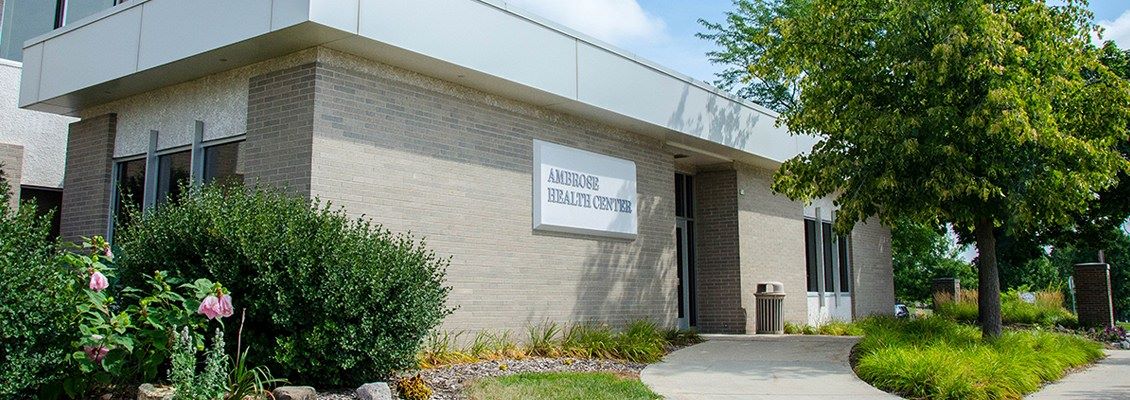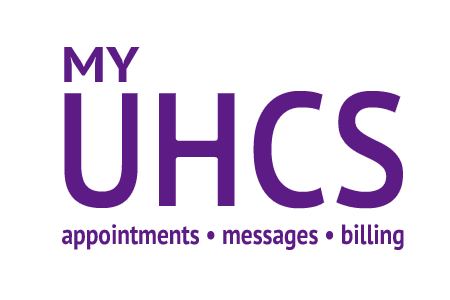Distressed Students
Counseling Services
You, one of your students, or one of your friends are distressed and you want to know what to do. This page covers frequently asked questions. If you are unsure, reach out to counseling services.
Ambrose Health Center, Second Floor
710 W Starin Road, Whitewater, WI 53190
- On the corner of Prairie and Starin Roads
- Walk-in between 8am-4:30pm, Monday through Friday
- Call us at 262-472-1305
- Email us and we will call you back
- If it is not an urgent or emergency, you can call and leave a voicemail or fill out the form and we will get back to you.
- If this is an emergency and you are looking to speak to a counselor immediately, please call us at 262-472-1305. Then, you will be routed to our after-hours emergency services or use one of the other resources found here (link to question below).
- Depression: sadness, tearfulness, guilt/anger and themself, trouble concentrating/remembering, loss of interest in schoolwork or usual activities, feelings of worthlessness, changes in appetite, difficulty sleeping, low energy level, feelings of hopelessness or helplessness, suicidal thoughts
- Anxiety: constant worrying, trembling, shaking, easily distracted, memory problems, difficulty sleeping, unreasonably high expectations, “on edge,” increased sweating, other physical symptoms they share
- Unusual Behavior or Marked Change in Behavior:
- Problems with Academic Performance
- Harmful Statements or Behaviors:
- Thoughts of Hurting Self or Others
- Poor Reality Contact (trouble distinguishing fantasy from reality)
- Increased Aggression (ranging from subtle, passive to violent outbursts including threats)
- Trauma or Crisis in Relationships
- Relationships (friendship, familial, romantic, roommates, etc.)
- Substance Use
- Stress in Any Aspect of Life
- Life Transitions
- Performance Difficulties
- Mood
- Emotions
- Eating and Body Image Issues
- And many other things on your mind
- Even though you cannot make an appointment for someone you care about, you can provide resources about counseling on and off campus, fill out a CARE Team Reporting Form, continue to check in on them, and if you are worried about immediate harm to self or others you can call 9-1-1.
- It is important to remember that just because you refer someone, doesn’t mean we can force them to meet or talk with us
- If you don’t know what resource to use, you can call or walk over. and we will provide appropriate resources.
- Even though you cannot make an appointment for one of your students, you can still refer them to our services by walking them over during our open hours, supporting them while they call/fill out the form, fill out a CARE Team Reporting Form, or just provide information about our resources and why you are providing them, and if you are worried about immediate harm to self or others you can call 9-1-1.
- It is important to remember that just because you refer someone, doesn’t mean we can force them to meet or talk with us.
- If you don’t know what resource to use, you can call or walk over. and we will provide appropriate resources.
At the end of this initial meeting, the counselor will determine what services would be most helpful. This could be:
- Referral for individual counseling at UHCS
- Referral for group counseling at UHCS
- Referral for a substance abuse assessment or other further psychological assessment at UHCS
- Referral to another UWW resource such as Health Services, academic advisor, etc.
- Referral to the community for longer term mental health or case management services
- Referral for hospitalization in order to stabilize the student
Also, it may be 2-3 weeks for an initial appointment if there is no risk involved
- The Campus Assessment, Response and Evaluation Team, known as the CARE Team, is a group of staff members from various departments who meet regularly to assist students experiencing difficulty and to help ensure the safety of our campus.
- More information about the CARE Team .
- Observe
- Listen to what the student is saying, pay attention to their behavior, body image, and facial expressions whether they are talking to you one-on-one or you notice something during class/practice/hanging out/etc.
- Offer Support and Assistance
- It is important to remember how tough it can be for a student/friend to talk about them struggling, so believe their experience.
- Know what the contact information is for various resources, including University Health and Counseling Services.
- Refer
- You can refer to appropriate resources and if you aren’t for sure, refer them to counseling and we will connect them to the appropriate resource(s).
- We greatly appreciate you walking someone over and we understand it can be confusing after you walk them over.
- You may just walk them over and then be asked to leave, you may be asked to wait in the waiting room by a counselor or the student, OR in some cases, the counselor may talk to you to gather more information. You will know immediately after walking the student over what the counselor and the student needs/wants.
YES! Even though you refer someone/walk them over, we still protect the student’s confidentiality and right to privacy. If the student decides to share with you, that is their right. Or if they sign a Release of Information because they want us/need us to talk to you or a different department, then we will have them sign and then share the pertinent information.
- Emergency: 911
- National Suicide Hotline: 988
- UW-Whitewater Police (24 hours): 262-472-4660
- Whitewater Police (24 hours): 262-473-0555
- Aurora Lakeland Emergency Department (24 hours): 262-741-2000
- Fort Atkinson Emergency Department (24 hours): 920-568-5330
- Walworth County Crisis Hotline (24 hours): 1-800-365-1587
- UW-Whitewater Sexual Assault Response Team (24 hours): 262-472-1060
- UW-Whitewater CARE Team (Dean of Students): 262-472-1060
- UW-Whitewater Health Services: 262-472-1300
- UW-Whitewater Residence life: 262-472-5275
- Mantra Care Hub
Disclaimer
All information on this website is written by UHCS professional staff unless otherwise noted. No data is collected on visitors to this site. Financial Support for this web site is provided by University Health & Counseling Service, Division of Student Affairs, University of Wisconsin-Whitewater. This web site does not accept advertising.
This site is not meant to replace the advice of a health care or counseling professional. You should not rely on any information on these pages, or information generated for you by this site, to replace consultations with qualified professionals regarding your own specific situation. Some links take you to a source outside of UHCS. The owners of that site, not UHCS, are responsible for the content.



